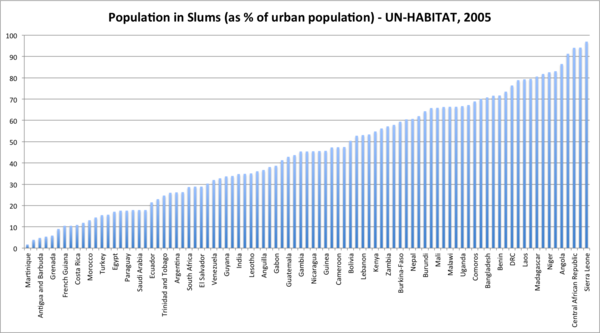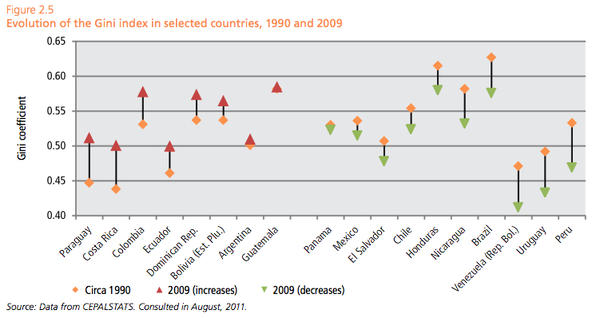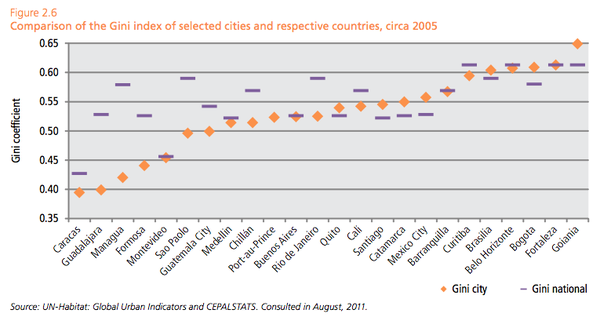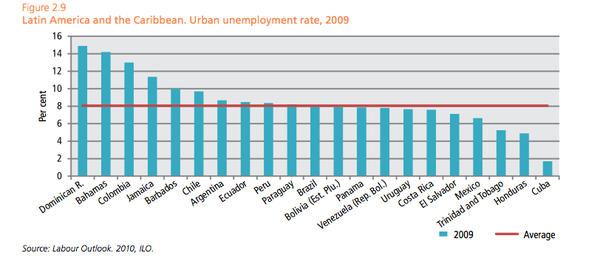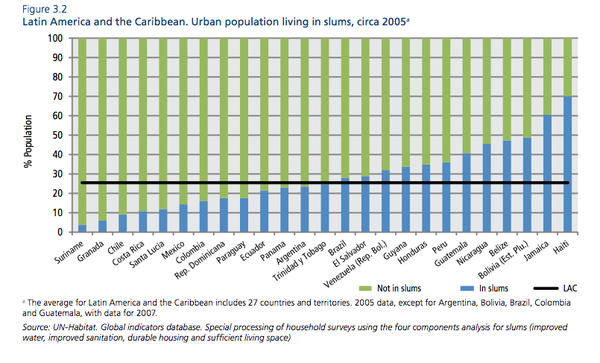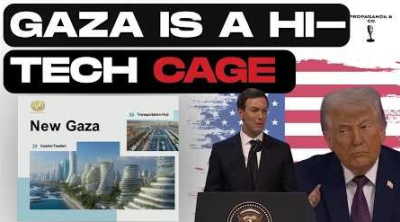The New Yorker Should Ignore Jon Lee Anderson and Issue a Correction on Venezuela
By Keane Bhatt | NACLA | April 24, 2013
As a result of many dozens—possibly hundreds—of messages from readers over the past few weeks that criticized The New Yorker’s inaccurate coverage of Venezuela, reporter Jon Lee Anderson issued a response in an online post on April 23. This marks the first time the magazine has publicly addressed its controversial and erroneous labeling of Venezuela as one of the world’s most “socially unequal” countries (I highlighted the error in mid-March). Although Anderson deprives his readers of the opportunity to evaluate his critics’ arguments (he offered no hyperlinks to either of my two articles on the subject, nor to posts by Corey Robin, Jim Naureckas, and others), he is clearly writing in response to those assertions.
To his credit, Anderson unequivocally admits two of his three errors: regarding Venezuela’s homicides, he acknowledges that he falsely wrote “that Venezuela had the highest homicide rate in Latin America. Actually, Honduras has the top rate.” Anderson proceeds to explain why Venezuela’s high homicide rate is nevertheless a grave problem—a position none of his critics, myself included, dispute.
The importance of this error rests instead in its revelation of a media culture under the influence of the consistent demonization of a country deemed an official U.S. enemy. This culture certainly played a role in allowing Anderson’s obvious falsehood to remain uncorrected for five months—five months after I first wrote about it, one month after I directly and publicly confronted Anderson about the error, and even then, days after I wrote another article urging readers to demand a correction.
While The New Yorker has dedicated literally no articles to U.S. ally Honduras since its current leader Porfirio Lobo came to power in repressive, sham elections held under a military dictatorship, Anderson was allowed to assert that Venezuela—a country with half the per capita homicides of Honduras—was Latin America’s leader in murders. One might reasonably suspect that a claim on The New Yorker’s website asserting that the United States had a higher homicide rate than Bolivia (Bolivia’s rate is actually over two times as high), would be retracted more expeditiously.
Anderson’s explanation for his second error—claiming that Chávez came to office through a coup d’etat rather than a free and fair election—further lays bare the corrupting effects of the generalized vilification of Chávez on basic journalistic standards of accuracy.
Anderson writes that despite his gaffe, he obviously knew Chávez “gained the Presidency by winning an election in 1998,” as he had “interviewed Chávez a number of times, travelled with him, and came to know him fairly well.” For Anderson to write such an egregious misstatement, then, and have it pass through what is likely the most rigorous fact-checking process in the industry, exposes a pervasive ideology under which he and his many editors and fact-checkers operate. As Jim Naureckas of Fairness & Accuracy in Reporting wrote, “It’s like writing a long profile on Gerald Ford that refers to that time when he was elected president.”
Finally, Anderson offers a desperate attempt to justify his third factual error, stating:
A number of letters I’ve received dispute, out of context, my reference to “the same Venezuela as ever: one of the world’s most oil-rich but socially unequal countries”; several cite an economic statistic known as the Gini coefficient—a measure of income inequality.
Notice that Anderson never tells his readers what Venezuela’s Gini coefficient actually is. According to the United Nations, Venezuela’s Gini, at 0.397, makes it the least unequal country in Latin America and squarely in the middle range of the rest of the world. Only by sidestepping this brutal empirical obstacle can Anderson attempt to lay out his case. He carries on by reposting three paragraphs of his original essay, which in no way mitigate the falsity of his original claim, for “context.” Anderson finally concludes by offering a novel justification for his error:
In terms of some of the components of social inequality, notably income and education, Chávez had some real achievements. (Income is what’s captured by the Gini coefficient, although that statistic has its own limitations, some particular to Venezuela.) But in housing and violence, his record was woefully insufficient. Those social factors are intimately related, to each other and to the question of equality.
A quick recap is in order before unpacking Anderson’s argument. Readers may remember that he first responded to evidence on income inequality by proclaiming, on Twitter, his agnosticism toward empirical data. Next, a senior editor at the magazine justified Anderson’s contention by arguing that Venezuela was one of the most unequal amongst other oil-rich countries—a point I debunked. Now, Anderson has settled on a definition of social inequality that minimizes Venezuela’s high educational and income equality in favor of high homicide rates and unequal housing.
But simply saying that Chávez’s record “was woefully insufficient” on housing and violence does not naturally equate to Venezuela’s standing as a world leader in social inequality. Anderson must rely on comparative international statistics to justify his position, but fails to do so.
While Venezuela’s homicide rate is high by international standards and a significant social ill, this alone does not necessarily make the country more socially unequal than another country with a lower homicide rate. Are Venezuelan homicides more skewed toward low-income residents than those in Costa Rica? Or Haiti? Are Venezuelan murders more targeted at women or ethnic minorities than those in Mexico or Guatemala? And given that the high homicide rate directly affects far fewer than one in a thousand Venezuelans annually, how could this statistic possibly outweigh the effect of massive income-inequality and poverty reductions? If he is solely basing his argument on murder rates, Anderson has no credible explanation as to why Venezuela is one of the world’s most socially unequal countries.
Anderson also doesn’t offer statistics showing that housing is more unequal in Venezuela than anywhere else. That’s because it’s not.
Out of the 91 countries for which the United Nations has available data, Venezuela is 61st in terms of the percentage of its urban population living in slums. That is to say, two-thirds of the world’s countries with available data have larger percentages of their urban citizens living as slum dwellers. In the Western Hemisphere, this includes Guayana, Honduras, Peru, Anguilla, Guatemala, Nicaragua, Belize, Bolivia, Jamaica, and Haiti.
It is also worth mentioning that this data was taken from 2005, when the percentage of Venezuela’s urban population living in poverty and extreme poverty was at 37%. By 2010, according to the United Nations, it had been cut by a quarter, to 28% (p. 43). Furthermore, 2005 predates a massive governmental push in 2011 to build affordable housing. Earlier this year, Venezuela’s Housing Commission chair asserted that “in the years 2011 and 2012, the Bolivarian government together with the people reached the goal of building 350,000 homes.”
It appears, then, that Anderson has discovered a new definition of “social inequality” that has eluded economists and sociologists worldwide—one that systematically downplays Venezuela’s educational and income equality while emphasizing a high frequency of murders and a rate of slum-dwelling that is low by international standards.
While one can applaud Jon Lee Anderson for finally acknowledging the value of social indicators and statistical data, he and his magazine cannot be allowed to define “social inequality” any way they see fit. No social scientist analyzing the available data could argue, like Anderson, that Venezuela is one of the world’s most socially unequal countries. While semantics games may be expedient in avoiding a necessary correction, readers should let The New Yorker’s editor David Remnick (david_remnick@newyorker.com) know that a retraction of Anderson’s claim is long overdue.
Update (4/24): FAIR’s Jim Naureckas also offers sharp criticism of Jon Lee Anderson and his fact-checkers for a transparently inadequate attempt to justify his error regarding Venezuela’s social inequality. Read more, at “Jon Lee Anderson Explains: Because I Said So.”
~
Keane Bhatt is an activist in Washington, D.C. He has worked in the United States and Latin America on a variety of campaigns related to community development and social justice. His analyses and opinions have appeared in a range of outlets, including NPR, The Nation, The St. Petersburg Times, and CNN En Español. He is the author of the NACLA blog “Manufacturing Contempt,” which critically analyzes the U.S. press and its portrayal of the hemisphere. Connect with his blog on Twitter: @KeaneBhatt
Related articles
- The New Yorker Corrects Two Errors on Venezuela, Refuses a Third (alethonews.wordpress.com)
- On Venezuela, The New Yorker’s Jon Lee Anderson Fails at Arithmetic (alethonews.wordpress.com)
- 50 Truths about Hugo Chavez and the Bolivarian Revolution (alethonews.wordpress.com)
- ‘Little Twerp … Get a Life’: The New Yorker’s Jon Lee Anderson Thinks He’s Somebody on Twitter (gawker.com)
EFF Fights to Protect Electronic Reserves at College Libraries
By Corynne McSherry | EFF | April 25, 2013
When college professors want students to read a small part of a book, they put that book on reserve at the library, so everyone can get access to the bit of information they need without having to buy the entire expensive work. Advances in technology have made this even easier for students: librarians have created electronic reserves, allowing online access to a digital version of the excerpt. But the publishing world has come down hard on these electronic reserves in a lawsuit aimed at Georgia State University (GSU), insisting that libraries must pay fees for excerpts they make available digitally to students. In an amicus brief filed on behalf of several national library associations today, EFF argues that electronic reserves must be protected to serve the public interest and preserve librarians’ and students’ fair-use rights.
This case started back in 2008, when the Association of American Publishers (AAP) recruited three plaintiffs to sue GSU for copyright infringement in their electronic reserves. GSU promptly updated its procedures to conform to fair use guidelines the AAP itself had helped draft for other universities. But instead of declaring victory, the plaintiffs continued to pursue this case, even taking it up on appeal when their claims were rejected by a federal district court.
In the amicus brief filed today, EFF urges the appeals court to see what the district court saw: the vast majority of uses at issue were protected fair uses. Moreover, as a practical matter, the licensing market the publishers say they want to create for e-reserves will never emerge—not least because libraries can’t afford to participate in it. Even assuming that libraries could pay such fees, requiring this would thwart the purpose of copyright by undermining the overall market for scholarship. Given libraries’ stagnant or shrinking budgets, any new spending for licenses must be reallocated from existing expenditures, and the most likely source of reallocated funds is the budget for collections. An excerpt license requirement thus will harm the market for new scholarly works, as the works assigned for student reading are likely to be more established pieces written by well-known academics. Libraries’ total investment in scholarship will be the same but resources will be diverted away from new works to redundant payments for existing ones, in direct contradiction of copyright’s purpose of “promot[ing] progress.”
A win for the publishers here would be a Pyrrhic victory at best for them, and a significant loss for the public interest. We hope the appellate court agrees that copyright law does not require forcing libraries to make reading a handful of pages either extraordinarily expensive or inordinately difficult for college students.
Files
![]() georgiastateamicibriefconformed.pdf
georgiastateamicibriefconformed.pdf
Related articles
- EFF To Represent Bloggers Against Copyright Troll (eff.org)
- LCA Files Brief on Behalf of Georgia State (districtdispatch.org)
Hezbollah denies responsibility for drone shot down by Israel
Al-Akhbar | April 26, 2013
Lebanese political party Hezbollah denied on Thursday that it had sent a drone over the Mediterranean sea, hours after the Israeli air force said it shot down an unmanned aircraft near Haifa.
“Hezbollah denies sending any unmanned drone towards occupied Palestine,” the Hezbollah-affiliated television channel al-Manar said.
Israel’s deputy defense minister earlier put the blame squarely on Hezbollah.
“An unmanned aircraft (UAV) was identified approaching the coast of Israel and was successfully intercepted by IAF aircraft five nautical miles off the coast of Haifa at approximately 2:00 pm today,” the military said.
Israeli Prime Minister Benjamin Netanyahu was inside an army helicopter when he was given the news of the drone, and was then forced to land until it was shot down.
“I see this attempt to breach our borders as extremely grave,” the premier said. “We will continue to do whatever we must to protect the security of Israel’s citizens.”
Israeli military spokesman Lieutenant Colonel Peter Lerner told reporters the drone had been identified moving down the Lebanese coast.
“A little after 1:00 pm, our aerial defense system identified (a drone) moving from north to south along the coast of Lebanon,” he said.
“Aircraft, helicopters and combat airplanes were alerted to the area and after confirmation that it was an unfriendly aircraft, they were approved to shoot it down.”
But despite reports blaming Hezbollah, Lerner was cautious, saying the incident was still being investigated.
“We don’t know where the aircraft was coming from and where it was actually going,” he said, adding that the navy was “searching for the remains of the UAV” as part of the probe.
But Deputy Defense Minister Danny Danon accused the Lebanese movement of being behind the attack.
“We’re talking about another attempt by Hezbollah to send an unmanned drone into Israeli territory,” he told army radio, describing it as “another attempt to destabilize the Middle East.”
Israel would respond to the incident in its own time, he said.
“We are ready and we will react as necessary,” Danon warned. “They know not to provoke us.”
Hezbollah has previously claimed responsibility for several drone incursions in the past years, most recently on October 7.
Israel frequently stages incursions into Lebanese airspace, often sending drones at low altitude in South Lebanon.
In March, UNIFIL spokesman Andrea Tenenti slammed the Israeli overflights, calling them a violation of Lebanese sovereignty and of the UN Security Council Resolution 1701, which ended the July 2006 war.
Arrested US citizen tied to rightists’ conspiracy
Agencia Venezolana de Noticias | April 25, 2013
Caracas – Interior Relations, Justice and Peace minister, Miguel Rodriguez Torres, informed Thursday about the arrest of a US citizen named Timothy Hallett Tracy, who is allegedly tied to conspiracy of local right-wing sectors against democracy in Venezuela.
Actions carried out by Timothy Hallett Tracy, aka ‘gringo,’ are tied to far right groups which seek to destabilize Venezuela through attacks in the streets after the April 14 presidential elections.
Minister Rodriguez Torres said that the objective of the plan was to create chaos in the country to undermine the government, creating a violent scenario.
“It is important to inform the population about situations that have been occurring. We will show the reasons and ties they have to carry out a series of actions we have been living since the April 14 elections at night,” Rodriguez Torres said at a press conference.
Since October, November and December 2012, he said, the National Bolivarian Service of Intelligence (SEBIN) started investigations on a plan named Connection April.
“All evidences we have gathered showed that the election day would come in complete normality; but once results were released by the National Electoral Council (CNE), right-wing candidate Henrique Capriles Radonski would refuse to accept it,” the Minister detailed.
During investigations, Rodriguez Torres added, a US citizen was found deeply related to rightist young people who make up the so-called Operation Sovereignty.
“When this relationship was found, surveillance and monitoring started and we noticed that this person manage to infiltrate into revolutionary groups to get their protection, though he related with the far right,” explained the Interior Relations, Justice and Peace minister.
This US citizen is presumed to be member of an intelligence agency. Also, he has been funded by foreign non governmental organizations.
Connection April
Miguel Rodriguez Torres explained that the plan Connection April aimed at stirring actions after results of the presidential election were released and leading to a civil war.
“It was its objective, leading us to a civil war. We have documents in proof of it, which they exchange through chips. Messengers took them from La Castellana square (eastern Caracas) to gringo’s house.”
According to him, investigations revealed that the idea was to achieve a civil war in Venezuela to lead to the immediate intervention of a foreign power.
“Those were and continue being their ends. We have over 500 videos seized in a raid. We wonder, Does housewives who voted for the opposing option want a civil war? Does taxi drivers want that? I am sure that nobody in this country, regardless of their stance, wants that, except these extremist groups headed by extremist leaders of rightist parties who want civil war,” said the Miguel Rodriguez Torres.
Evidence
At a press conference, minister Miguel Rodriguez Torres presented a video in which Antonio Rivero, retired general of the Armed Force, giving orders to people who disturbed public order at Altamira community, greater Caracas.
All evidence seized in a raid carried out last Wednesday night will be submitted to the corresponding organs.
The National Government has managed to act on time to continue guaranteeing peace and calm to the Venezuelan population thanks to intelligence actions nationwide, Rodriguez Torres stressed.
“The President of the Republic, Nicolas Maduro, has emphasized that this country will always be on the road of peace and coexistence. It has to be an effort of all Venezuelans, regardless of our ideological and political stance. We have to reject and isolate these fascist factors that are trying that Venezuelans kill among ourselves and hate ourselves. We cannot allow that,” insisted the Minister.
Venezuelan Government Accuses Capriles of Making “Impossible” Demands
By Chris Carlson | Venezuelanalysis | April 25, 2013
Maracaibo – Opposition leader Henrique Capriles claimed yesterday that the presidential elections were “stolen”, and demanded further audit measures that the Venezuelan government has said are “impossible”.
Capriles made the statements during a press conference on Wednesday in which he gave the government an ultimatum regarding the audit.
“The truth is that you stole the elections, that’s the truth. You stole the elections and now you have to explain that to the country and the world,” he said.
Capriles demanded that the National Electoral Council (CNE) begin the auditing process immediately, and said his campaign will refuse to wait any longer.
“That is what we are demanding. We will give you until tomorrow,” he said, though he did not say what would happen if the CNE did not respond.
However, the CNE had already said last week that it would announce the beginning of the audit this week, and was expected to make an announcement today.
The Capriles campaign went on to demand a series of additional audit measures that are not included in the audit that has been approved by the CNE. His campaign representative Roberto Picón said that in addition to a complete audit of the electoral machines and the paper ballots, they are also demanding access to the electoral registry, the fingerprint system and a verification of each individual voter.
“We are asking for complete access to the electoral registry, not only to count how many people voted but also to audit all of the details, to audit the people that voted to see if there are dead people who voted, or foreigners, or duplicates, and to see if there are fake fingerprints,” said Picón.
He further said that they are demanding the CNE validate every individual fingerprint in the system, comparing each fingerprint to every other to assure none are duplicated, validate every person’s signature on the day of the elections and that they provide proof that none of the electoral data has been altered since the elections last week.
“If it doesn’t include the electoral registry, then it is not an audit. We won’t accept a shoddy audit,” said Capriles.
Various government officials have responded to these demands, saying they would be impossible to meet, and that the Capriles campaign knows it.
“They are making requests to the CNE that are absolutely impossible to grant. They are asking that every fingerprint and every signature of the almost 15 million people who participated in the electoral process be verified,” said Calixo Ortega.
“This would take like 5 years to verify, because it takes hours to verify a single fingerprint or signature, and there are 15 million that would have to be verified,” he said.
“It appears that they are purposely making requests that cannot be granted so that they can later say that the CNE has denied their request,” he explained.
Maduro’s campaign manager Jorge Rodgriguez also responded to Capriles, accusing him of attempting to create more violence in the country.
“Now Capriles says the elections were stolen. Where is the proof? Where is a single piece of evidence of that? If you can’t show any evidence, then it didn’t happen,” said Rodriguez.
Rodriguez also accused Capriles of attempting to generate more violence in the country.
“What are you doing giving the government an ultimatum like that? You have already left a cemetery in your wake with 9 fellow Venezuelans dead from the violence you created,” he said.
Capriles has yet to present any evidence of fraud in the April 14th elections. In the days following the elections, he mentioned various examples that were all promptly shown to be false.
Venezuela’s electoral council is expected to announce the timeframe of the auditing process today or tomorrow. It is unlikely that the additional measures being demanded by the Capriles campaign will be included in the audit.
Related articles
- Venezuela’s Electoral Council Approves Audit of 100 Percent of Votes (alethonews.wordpress.com)
- Capriles Falsifies Evidence in Order to Claim Fraud in Venezuela’s Elections (alethonews.wordpress.com)
- Capriles Attacks Venezuelan Electoral Council, Refuses to Sign Document (alethonews.wordpress.com)
